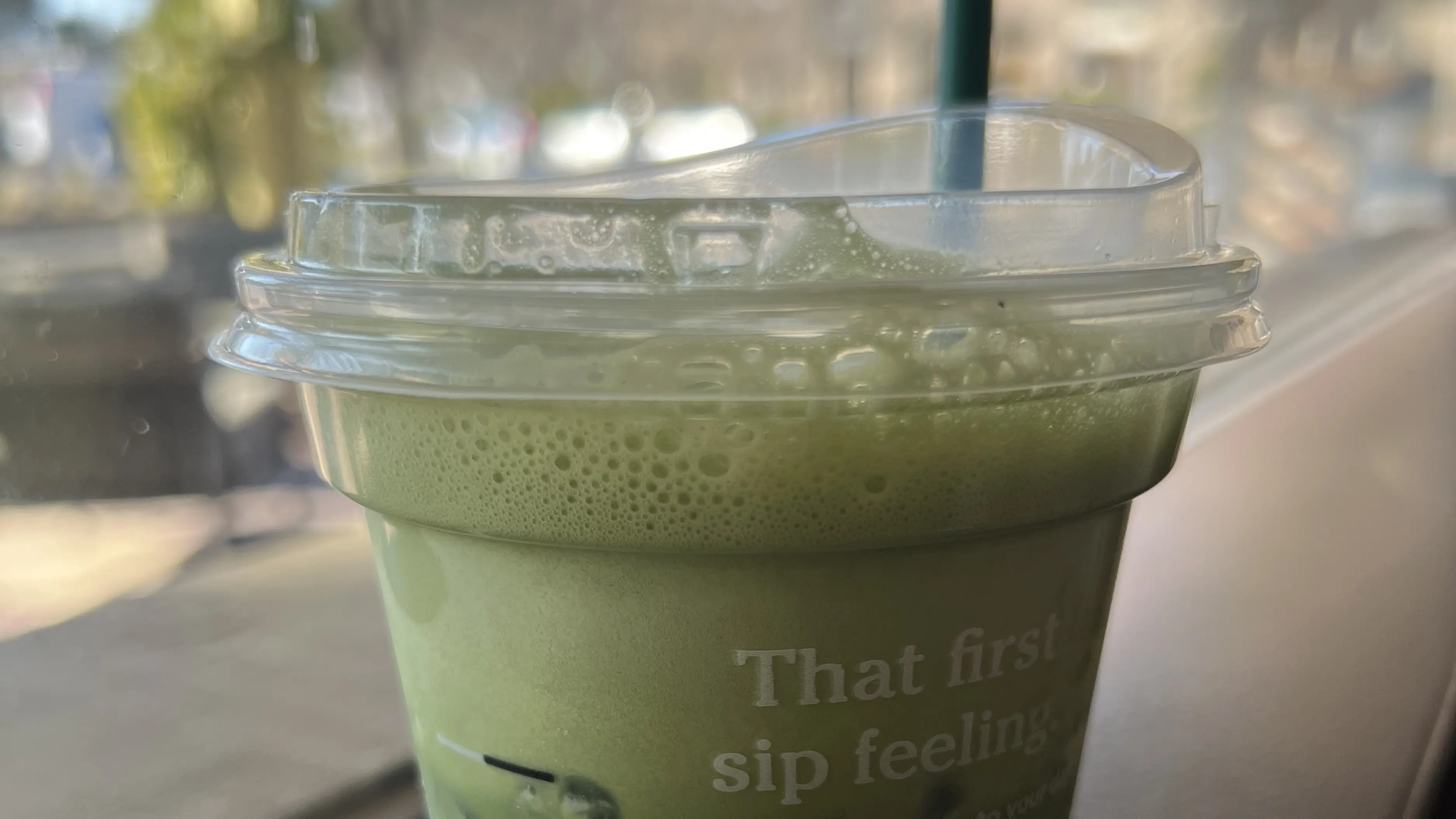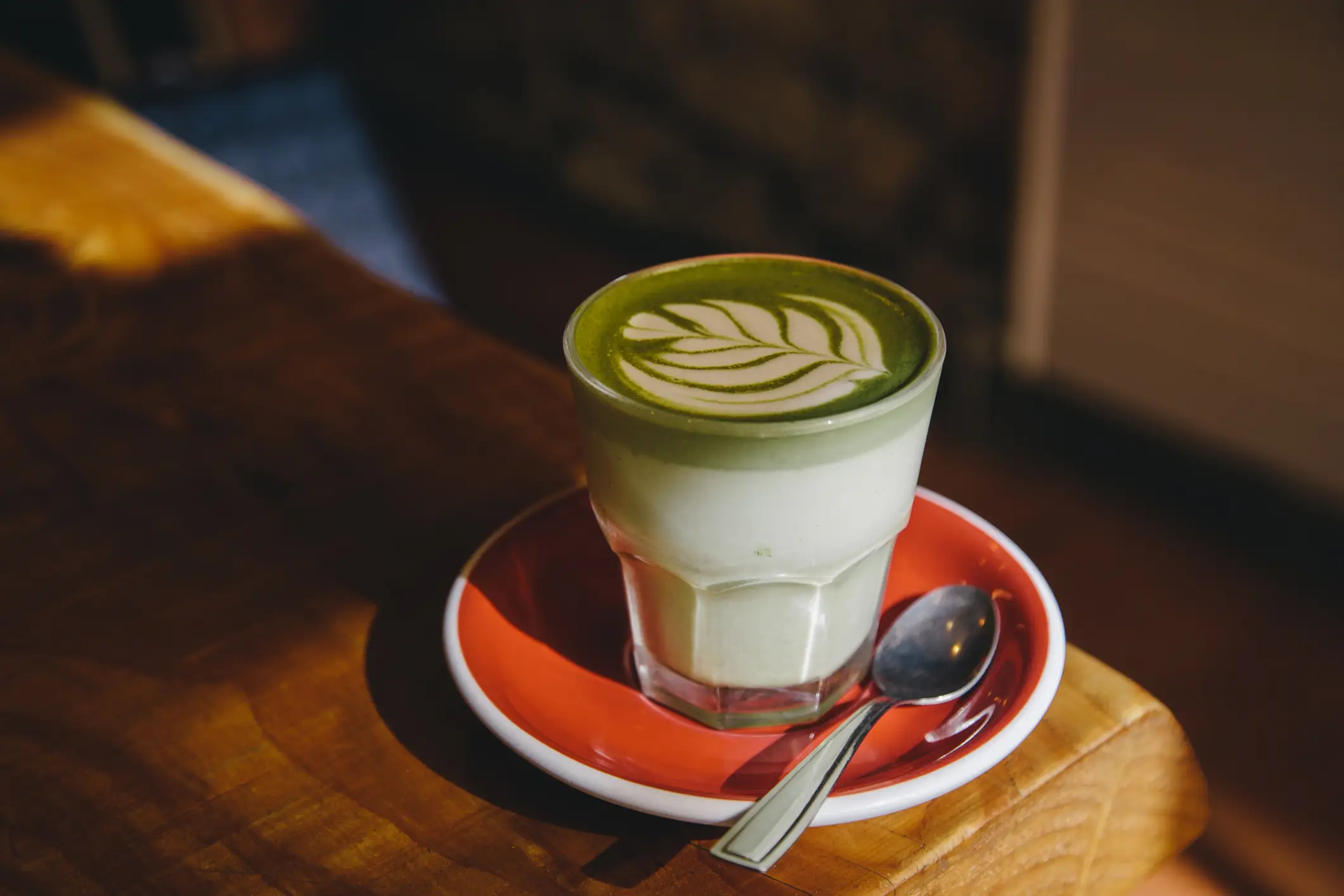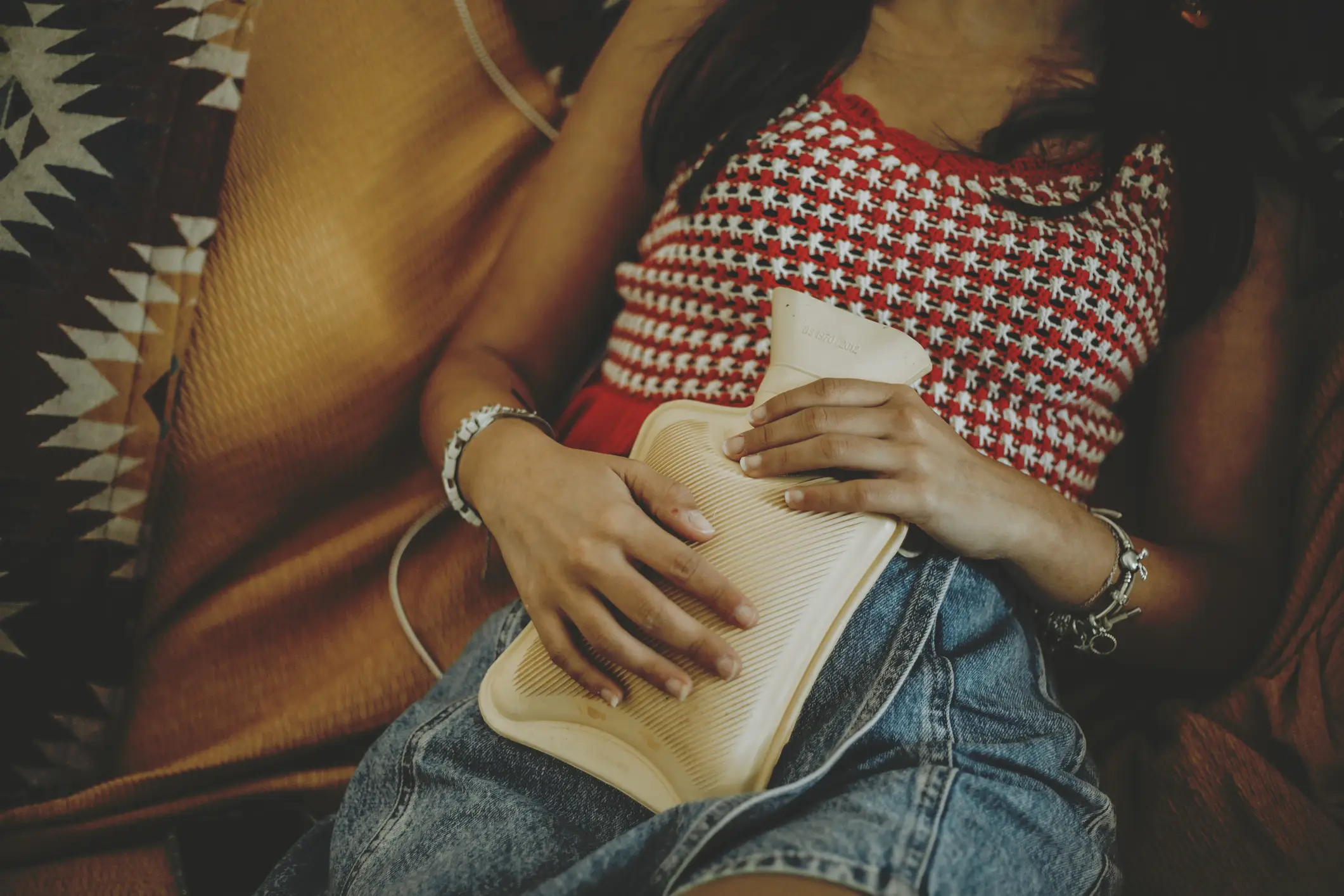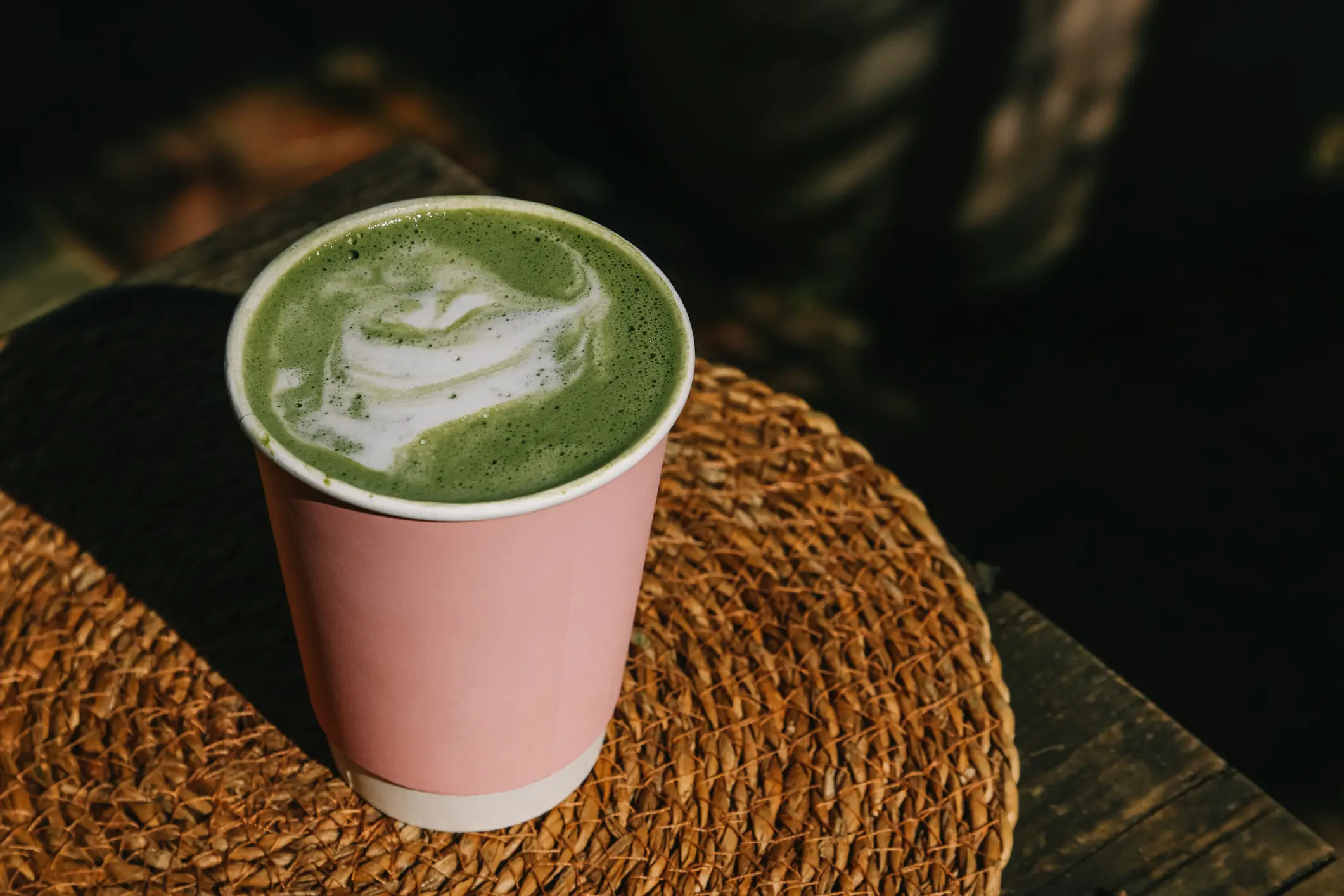
The internet is crammed full of warnings, advice, and suggestions when it comes to our health.
And, if you have the habit of looking up your symptoms online, you'll know all too well exactly what it's like to be bombarded with a million contradicting recommendations, with the latest to be all to do with a pharmacist who has issued a warning that drinking matcha could have a negative impact on people's periods.
As we know, we've seen a boom in all things matcha this year, with both high-street and indie cafes alike pumping out bucketloads of the green elixir, which is essentially finely ground powder made from specially grown and processed green tea leaves.
So, you can imagine people's panic after the likes of TikTok pharmacist @syahfarmasi claimed that matcha's high caffeine content has the potential to disrupt your hormonal balance.
Advert

According to Syah, each cup of matcha contains approximately 70 milligrams of caffeine.
"Excessive caffeine intake can interfere with the body's production of progesterone and estrogen," he continued, stating that this hormonal disruption could lead to a number of menstrual complications, including irregular periods, increased menstrual pain, mood swings and general menstrual instability."
He recommended that anyone experiencing irregular periods should hold off on matcha sipping for one to two weeks to see if it makes any changes to their cycle.
However, with that said, many other outlets have reported that there are actually many benefits to drinking matcha during your period.
What are the benefits of drinking matcha during your period?

Matcha.com claims: "With its unique combination of antioxidants, L-theanine, and gentle energy boost, matcha may help combat fatigue, reduce inflammation, and even stabilise your mood."
Meanwhile, menstrual cup brand Lunette adds that drinking matcha during your period can ease period cramps, boost antioxidants, offer pain relief, boost your energy and reduce mood swings.
And, according to Asako Miyashita, a Japanese Registered Dietitian Nutritionist of the State of New York (MS, RDN, CDN), matcha 'helps reduce cramping. It is good for your body, especially during menstruation'.
Ooika further notes that you shouldn't feel any negative side effects from drinking a standard amount of matcha, adding that the 'potentially troublesome' compound people worry about in tea is caffeine.
How does caffeine affect the body during your period?

As we know, caffeine stimulates your central nervous system and, when over-consumed, it could lead to disruption of sleep, feelings of anxiety and nervousness and mood swings.
And, when you're on your period, you're already prone to those symptoms, which could worsen due to caffeine. According to Flo, caffeine can also block a hormone, called adenosine, that can cause blood vessels to constrict, thereby slowing down blood flow.
But you'd apparently need to drink a whole load of matcha to feel any negative effects brought on by the caffeine, as the FDA explains that healthy adults can consume up to 400 milligrams of caffeine a day (which works out as around four cups of coffee) without risk to their health.
One cup of matcha tea contains even less caffeine than a cup of coffee - around 25 to 70mg per cup compared to 70 to 140mg in a cup of coffee.
Additionally, caffeine in matcha doesn’t affect you the same way it does in coffee.
Now, that's not to say Syah is completely wrong, as too much of anything is not good for your body - a principle that applies to all kinds of food and drinks.
Other doctors' verdicts
Dr Donald Grant, GP and Senior Clinical Advisor at The Independent Pharmacy, told Tyla: "Yes, high caffeine consumption can cause disruption to menstrual cycles, impacting the length and severity of periods. A 1999 study revealed that women with high caffeine consumption were more likely to experience shorter, but heavier periods. High caffeine intake can also raise cortisol levels, causing further disruption to the body’s hormonal balance, which can lead to irregular or missed periods.
"Additionally, high caffeine intake can also make PMS symptoms worse. It can disrupt sleep, cause mood swings and raise stress levels. Instead of prioritising caffeine, remaining hydrated and prioritising a well-balanced, nutritional diet is recommended for long-term well-being and minimal menstrual cycle disruption."
Meanwhile, Dr Crystal Wyllie at Asda Online Doctor pointed out: "There is no direct study to support the claim that excessive matcha consumption will have adverse effects on a woman’s menstrual cycle and hormone production, but it’s still important to exercise caution when consuming caffeine.
"Caffeine in high amounts from any source can potentially worsen cramps and contribute to bloating as it is a vasoconstrictor, which means that it narrows blood vessels and reduces blood flow, so excessive consumption could potentially have an impact on a patient’s menstrual cycle. However, this is the case for all caffeine-containing products, rather than just matcha as an anomaly.
"Matcha however, also contains a powerful antioxidant known as ECGC, which can reduce inflammation and aid digestion, potentially even easing cramps.
"In terms of hormone production, there is not enough clinical evidence to suggest that matcha has any harmful effects on hormone production during the menstrual cycle. Matcha contains L-theanine, an amino acid that promotes relaxation, which could help to reduce cortisol and regulate stress. However, it is important to note that matcha doesn’t directly ‘balance’ hormones like estrogen and progesterone, in the same way that hormonal therapy would."
Topics: Health, Advice, Life, Food and Drink, Women's Health, Periods